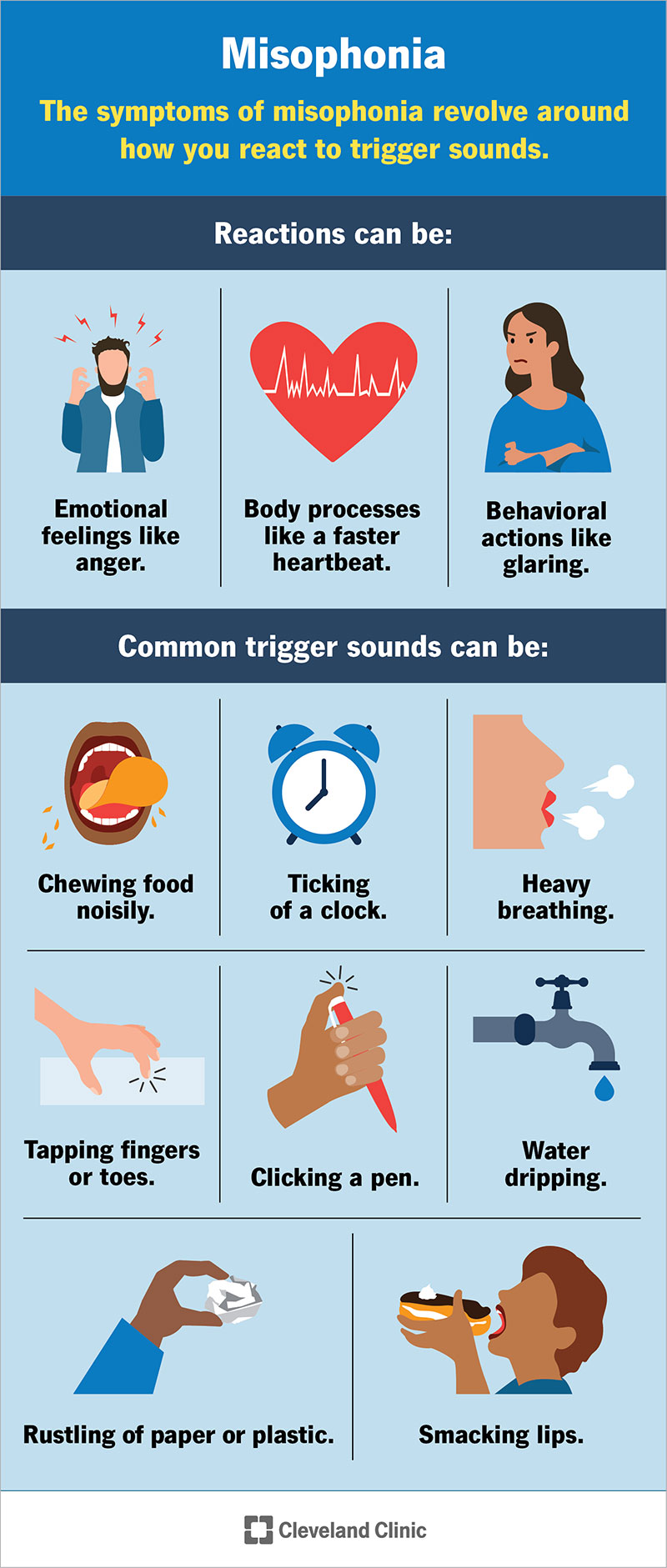Sounds of Everyday Life

"Misophonia is a decreased tolerance to specific sounds, but it's more than just being annoyed or irritated, it's an extreme reaction that includes anger, panic or feeling trapped and helpless.""The nature of the reaction is different. From a clinical perspective, we're looking at the impact that reaction has on someone's life.""There's not enough evidence to be recommending any one particular treatment at the moment. There's one small randomized control trial on cognitive behavioural therapy [CBT] that showed it did have some benefits."Dr Jane Gregory, clinical psychologist, University of Oxford"It's a very complex condition.""Some people's brains are most likely wired differently ... but early life experiences can also have something to do with the intensity of the emotional response."Dr. Silia Vitoratou, senior lecturer, King's College London
 |
Misophonia, an as-yet little understood disorder just recently received recognition as a legitimate medical condition. The label given it translates as "hatred of sound". It was at one time considered to be a rare condition but that has changed since new research from King's College London and Oxford University found that the condition affects one in five people. Misophonia triggers a full-on fight-or-flight response in some of its sufferers, along with overwhelming feelings of anger, anxiety or disgust.
The reaction to sounds that can trigger a tidal wave of rage; sounds as mundane as brushing teeth, the buzz of an electric light, the scrunching sound of aluminum foil, keyboard tapping, can even cause a physiological reaction with a raised heart rate, tense muscles or dizziness. A new study published in the journal PLOS One, was the first to assess the prevalence in the general population of misophonia. A subject group of 772 people was questioned on their reaction to common sounds that would trigger their aversive response.
Misophonia symptoms that caused them "significant burden" was reported by 18.4 percent of those involved, yet only13.6 percent had heard of the misophonia condition, the takeaway of which is that people may not realize that this is a condition that afflicts them. Severe cases of misophoonia can make daily life miserable and can interfere with personal relationships. People with the condition have mostly suffered in silence with this poorly understood condition, which wasn't formally recognized until 2001.
 |
Research from Newcastle University in 2017 indicated that when misophonia is triggered, a visible difference in the frontal lobe of the brain can be seen. While being mostly dismissed as irrelevant, it was conflated with mental health conditions such as anxiety and obsessive compulsive disorder (OCD), yet even sharing some similarities to these far better-known conditions, misophonia is distinct. Childhood trauma, it is thought, could b e a trigger in extreme cases.
Dr. Gregory believes the condition is caused by an adaptive feature of the brain where an individual perceives a threat in non-threatening sounds that trigger anxiety and a fight-or-flight response. And it is a condition that is difficult to treat. An audiologist, suggests Dr. Gregory, may be able to diagnose misophonia and offer coping strategies. Hypnotherapy, white noise, or Tinnitus Retraining Therpy (TRT) can be helpful, but more research is required into what causes the condition and how best to treat it.
Labels: Common Condition, Misophonia, Research, Sound Irritation
0 Comments:
Post a Comment
<< Home